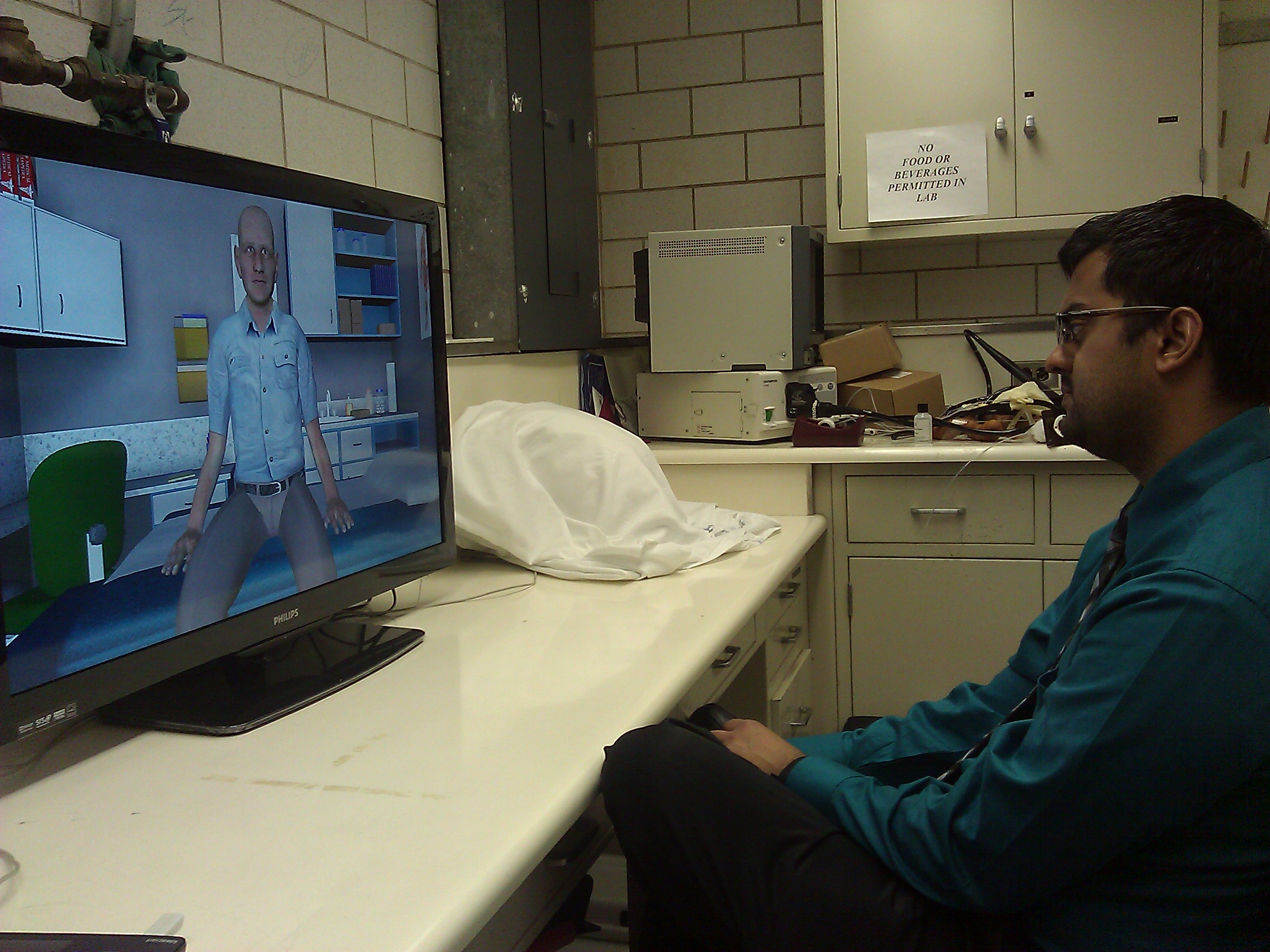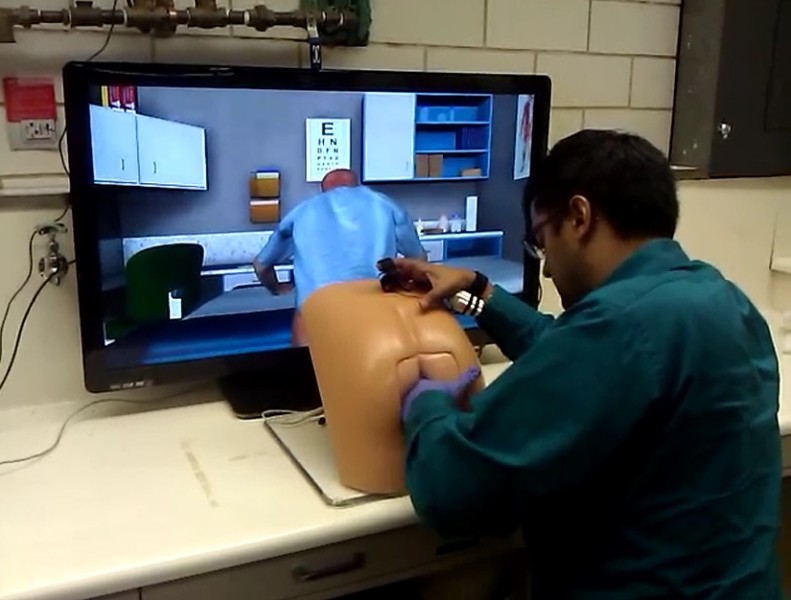For medical students, it can be a nerve-wracking prospect to administer intimate exams to patients.
A group of scientists at the University of Florida, Drexel University and the University of Wisconsin jointly developed new technology to help medical students hone their skills at prostate and breast examinations. Their research was supported by the National Science Foundation (NSF).
The result of four years of hard work? A robotic butt named Patrick, who delivers instantaneous feedback to students about the prostate exam he's receiving.
Patrick comes equipped with four sensors, and its highly-visual software can inform students whether they're applying optimal pressure. He might inform the student if the pressure is too soft or if they have neglected to cover the whole prostate.

It's not just about perfecting their technique; students can also use Patrick to practice their bedside manner.


